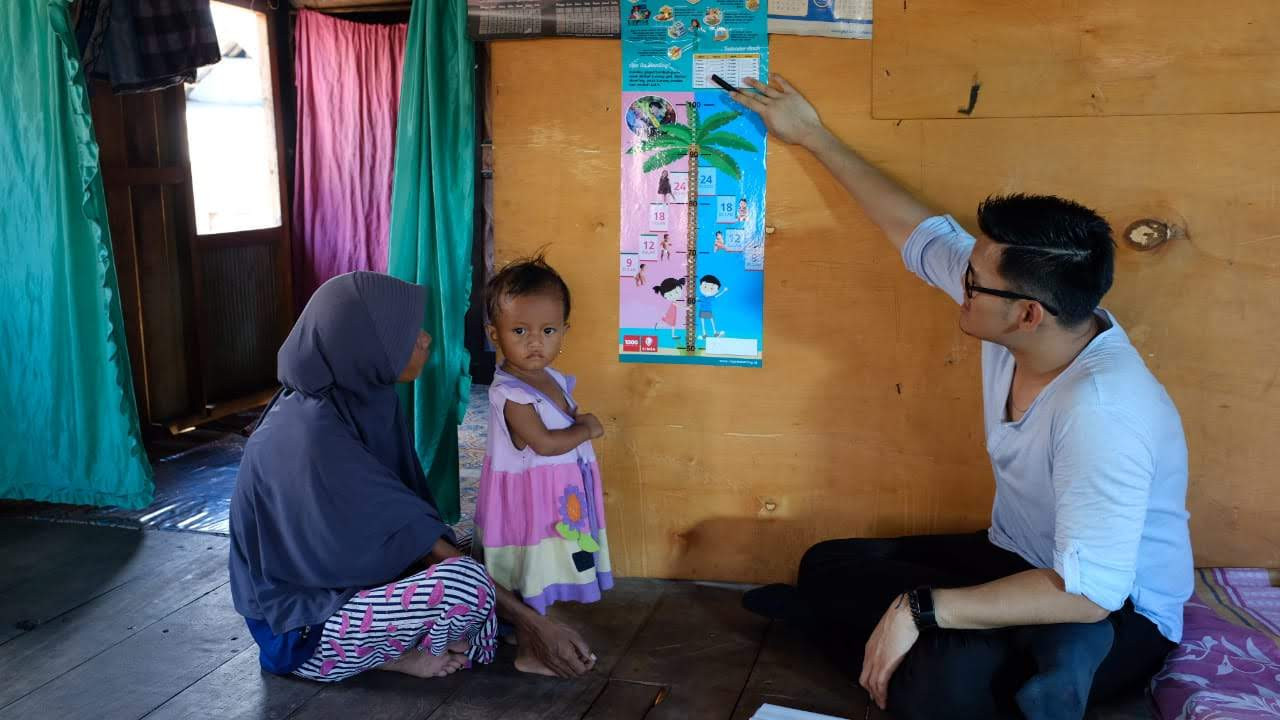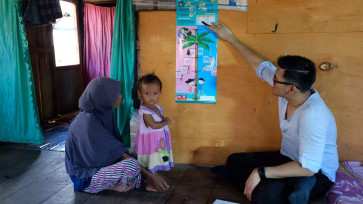Popular Reads
Top Results
Can't find what you're looking for?
View all search resultsPopular Reads
Top Results
Can't find what you're looking for?
View all search resultsIndonesia races against time to meet child stunting target
Only about three years remain for Indonesia to bring its child stunting rate down to the targeted 14 percent by 2024.
Change text size
Gift Premium Articles
to Anyone
O
nly about three years remain for Indonesia to bring its child stunting rate down to the targeted 14 percent by 2024. As stunting in the country has shown signs of declining over the past five years, the target should be within reach, but now that the COVID-19 pandemic has put the health of women and children at further risk, many wonder if the goal is still achievable.
President Joko “Jokowi” Widodo said at a national coordination meeting at the State Palace in Jakarta on Jan. 28 that fulfilling the target would be difficult. But he was optimistic that Indonesia would achieve it through hard work and good management – and considering its performance over the past five years.
Indonesia reduced the prevalence of stunting in children from 37 percent in 2016 to 27.6 percent in 2019. That is why National Development Planning Minister Suharso Monoarfa, who also heads the National Development Planning Agency (Bappenas), said during the Scaling Up Nutrition (SUN) meeting in December 2020 that Indonesia would be able to achieve its 2024 stunting goal.
To show its seriousness, the government has increased the transfer funds and village funds designated for stunting reduction to Rp 86.1 trillion (US$5.99 billion) this year from Rp 76.2 trillion last year. In addition, allocations for stunting reduction programs have been made available across a number of ministries and non-ministry government institutions, Finance Ministry data shows.
In 2020, the nation’s stunting budgets, which were allocated to 20 ministries and non-ministry government institutions, totaled Rp 27.5 trillion, with about Rp 24.9 trillion provided for nutrition-sensitive interventions, Rp 1.8 trillion for specific interventions and the remaining Rp 800 billion for coordination support.
Read also: COVID-19 must not compromise fight against stunting
Along with the expanded national budget for stunting reduction in 2021, the government aims to expand its special allocation fund (DAK) for physical and nonphysical development projects to counter stunting, Finance Minister Sri Mulyani Indrawati said during a national technical coordination meeting on the acceleration of stunting prevention on Oct. 21, 2020.


















